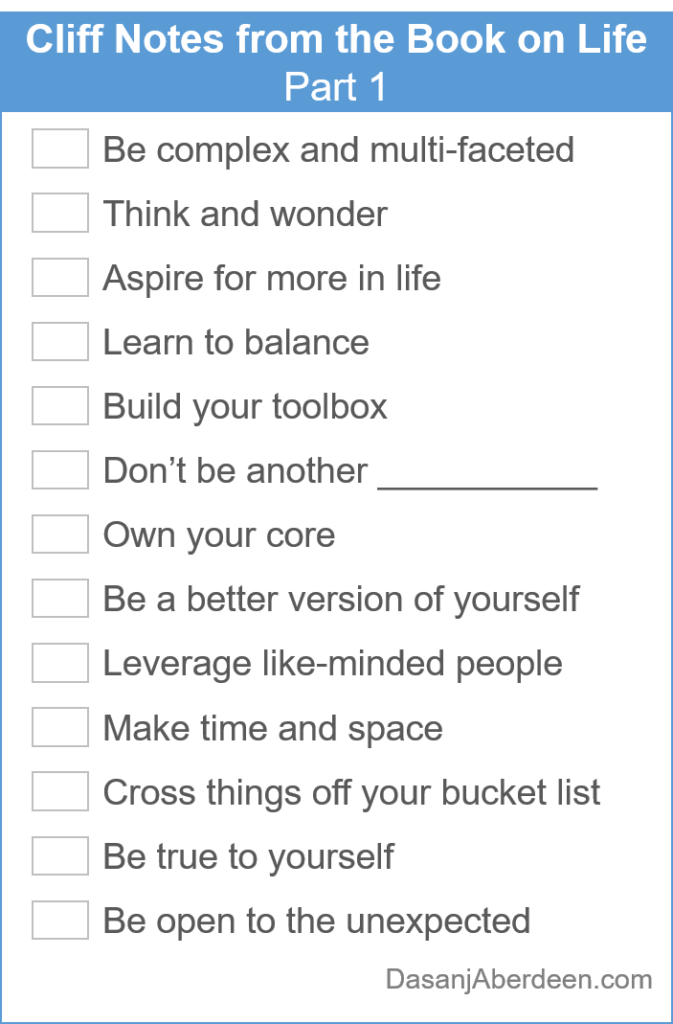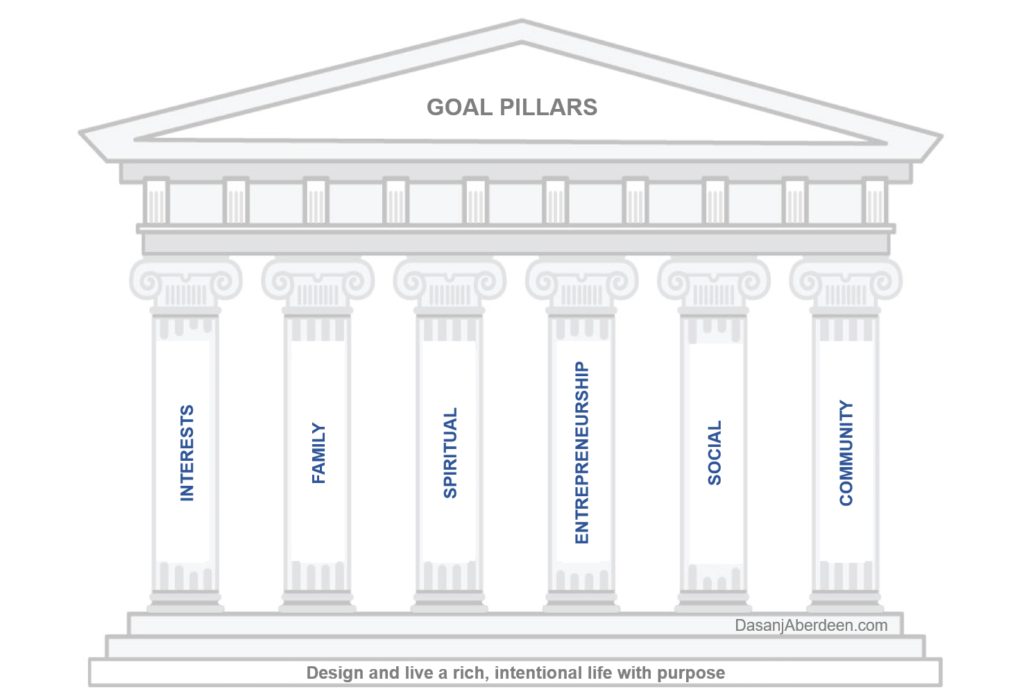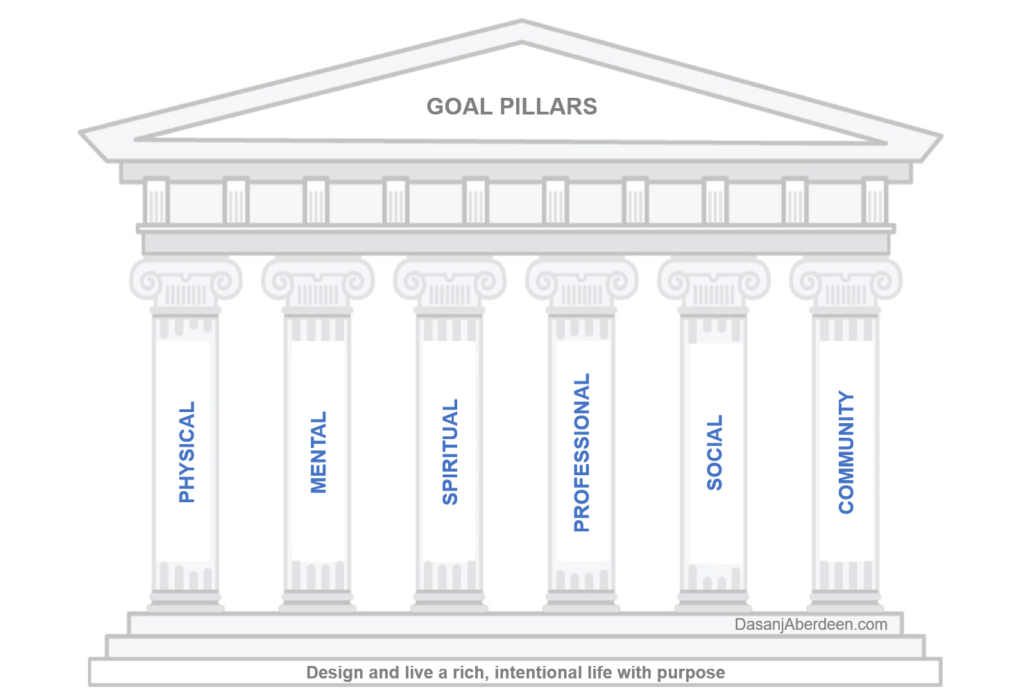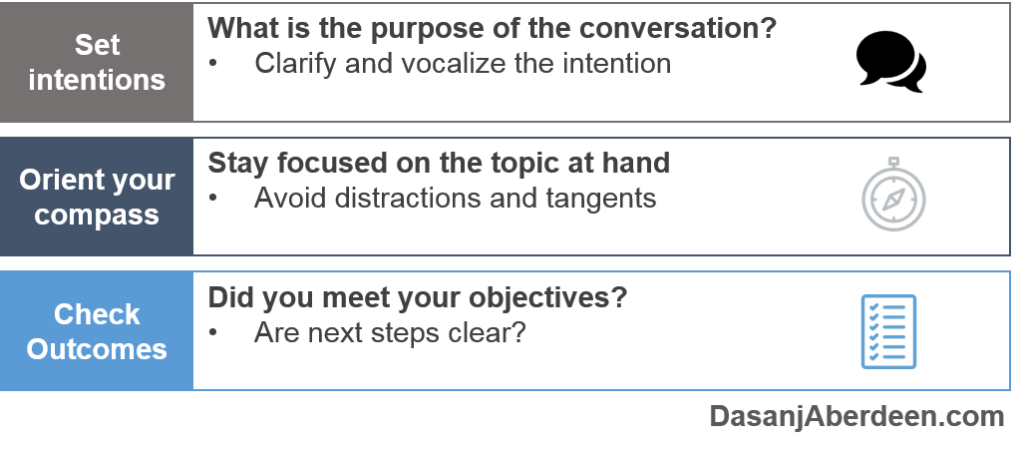The ability to work together and collaborate effectively has a big impact on how much teams accomplish. This has traditionally been assessed by the output of the team which is the combined contributions of the individual team members via their assigned tasks. Inherently, the evaluation of team performance has been based on what individual team members do.
In What Kind of Thinker Are You?, Mark Bonchek and Elisa Steele argue that it is “how teams think together that most determines their performance.” They propose that similar to how team members today “have assigned doing roles, there should also be thinking roles.”
Their three-step method entails first identifying the “focus on your thinking in a particular context or setting” such as ideas, process, action or relationships. As an example, if you and your friends are planning a trip, do you generate ideas of places to visit, plan the itinerary, take action to book the flight or call up friends in Paris to let them know you’re coming? The next step is to observe if your orientation in that setting leans toward the big picture or the details. Lastly, combine these two dimensions to see your thinking style.
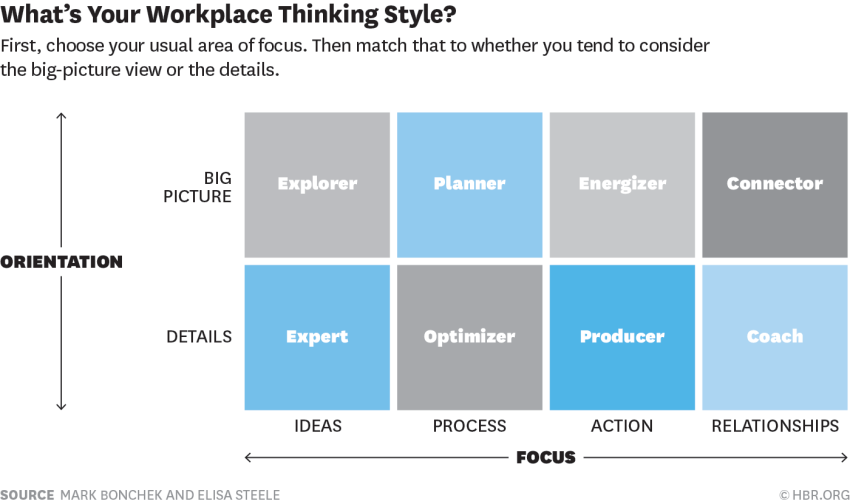
This exercise is good to help us identify our gaps. Chances are, we don’t have all of the thinking styles above covered on our own. Make note of where you stop short. Is it a recurring theme in your work? This presents an opportunity for us to identify team members who compliment us.
I’ve worked with teams that were formed in this way where each person’s role is aligned with how they think. In one example, a product management team had an idea for a new service that would improve customer experience and generate additional revenue for the company. The initial two-person team outlined the new service as explorers and experts. They then added a project manager who was more planning and process-oriented and identified all the necessary milestones to make the new service a reality. Next, an extended team was put in place to drive and take action in functional areas such as operations, marketing, sales, training etc. Lastly the core product management team and project manager combined efforts to build relationships with supporters and strategic partners. Ultimately, the service was launched successfully with the combined effort of individuals whose contributions aligned with their thinking style.
When we’re all operating in our zone, we get more done, are more effective and perform better. It makes sense to focus on our strengths and get help in areas where we’re not as strong. When this is someone else’s strong point, it ends up being a win-win for the team. Richard Branson said it best:
Surround yourself with people who complement your weaknesses and share your passions — success will follow.
******************************
Where do you fall on the chart above? Can you think of teams you were a part of that had an imbalance? What was the impact on team performance and morale? I’d love to hear from you in the comments below!
Dasanj Aberdeen is an entrepreneurial spirit who embodies the combination of left-brain logic and right-brain creativity. She is a consultant and proponent of multidisciplinary education, approaches and pursuits. She writes about their benefits in modern times and integrating multiple interests into a sustainable and fulfilling lifestyle. She’s a graduate of The Wharton School of the University of Pennsylvania and Temple University with a concentration in Technology & Innovation Management, jointly delivered by the Fox School of Business and College of Engineering.

